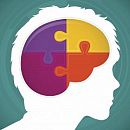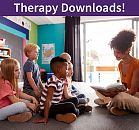Auditory Processing Disorders, Dyslexia And Apraxia: Assessments And Evidence-Based Interventions #e118
Presenter: Martha S. Burns, PhD, CCC-SLP
Learn the science behind assessment and evidence-based interventions for APD, Dyslexia and Apraxia.
This course reviews neuroscience research on the underlying causes of Auditory Processing Disorders (APD), Dyslexia and Childhood Apraxia of Speech (CAS). Several neuroimaging studies will be highlighted including recent dyslexia research from the Shaywitz team at Yale and research on Prompt for CAS. This course then reviews available assessment tools and evidence-based interventions.
Course is offered for 0.2 ASHA CEUs – 2 Contact Hours.
Course Overview – Run Time: 2:15:52
- The human cortical maps for phonological processing.
- Behavioral characteristics of auditory processing disorders.
- Contrast auditory processing disorders from attentional disorders.
- Evidence-based bottom-up and top-down interventions for APD.
- The human cerebral connections identified as critical for reading.
- The differing cerebral connection patterns associated with dyslexia.
- Interventions for struggling readers and individuals with dyslexia.
- The human cortical regions that distinguish CAS.
- Learn how to reliably diagnose CAS.
- Evidence-based interventions for CAS.
– A.H., prior course participant
Read more comments about this course!
– L.R., prior course participant
Read more comments about this course!
The content of this online CE course does not focus exclusively on any specific proprietary product or service. Presenter financial and non-financial disclosures may be found in the Presenter & Disclosures area.
Video PowerPoint presentation with author narration & downloadable handout. Stop and re-start the course at any point. Learners retain access to course content after completion for ongoing reference and review.
Reviews
"Comparison of different methods of remediation for Apraxia was helpful. The course was comprehensive and thorough." S.H. (Jul. 2024)
"Discussing the difference between apraxia and speech difficulties in general was beneficial. I enjoyed the review of neurology, especially more recent research." T.E. (Jul. 2024)
"The difference between APD and ADD was helpful to discuss. Good pacing and relevant information." A.P. (Feb. 2024)
"The information on dyslexia is most beneficial for my practice. Information was presented clearly and concisely." M.M. (Jan. 2024)
"I liked all of it! The course was excellent." J.D. (Jan. 2024)
"Connecting APD with reading skills was beneficial to discuss. I enjoyed the evidence-based information and sound theory." B.D. (Jan. 2024)
"Increasing focus on auditory discrimination and phonemic awareness as well as the normed language skills for preschool and kindergarten. My work is with early intervention, and severe language delays diluted my expectations and targets. I liked the neurological processes of language and reading." J.W. (Dec. 2023)
"I loved learning about pruning of the brain. I liked the pacing and slides." A.R. (Dec. 2023)
"Course was very succinct. The technical aspects of treatment and information on apraxia were beneficial." A.V. (Nov. 2023)
"I liked the course organization. Auditory processing was beneficial to discuss." S.Y. (Nov. 2023)
"Understanding how dyslexia and reading challenges are language-based issues. I enjoyed the discussion of neuroscience foundations." L.S. (Oct. 2023)
"I liked the helpful hands-on therapy information. And that course was research-based." L.K. (Oct. 2023)
"Discussion on causes, assessment and treatment of Auditory Processing Disorders was beneficial. The section on APD was a total refresher for me as an SLP. We don't tend to hear much about this once we have graduated university." J.B. (Sep. 2023)
"I enjoyed learning about the different evidence-based approaches to assess and treat dyslexia and apraxia of speech. I liked all the detailed information about neuroscience presented in this course." L.R. (Jun. 2023)
"The topics on apraxia and dyslexia were beneficial." M.M. (Jun. 2023)
"Knowledge on assessments and treatment protocols was beneficial. I liked the neuroscience." C.W. (Mar. 2023)
"I liked the specific help in explaining dyslexia and CAS to parents." J.S. (Mar. 2023)
"Learning how closely language development correlates with literacy skills. The neurologic basis the presenter provided in identifying and describing both developmental as well as acquired speech/language disorders was beneficial." S.M. (Feb. 2023)
"Well rounded course, and I liked that the speaker mentions various evidence-based research to treatment." J.C. (Jan. 2023)
"I liked the discussion of various dyslexia and CAS programs." M.A. (Dec. 2022)
"All of it was beneficial, especially the information on dyslexia. I liked the suggestions for evidence-based intervention." L.D. (Dec. 2022)
"The information was beneficial on how reading difficulties are linked to oral language processing difficulties, and how most of the school day is spent in oral language instructions, therefore showing children with reading difficulties will likely have a hard time at school. I liked the neuroscience focus." W.G. (Dec. 2022)
"I enjoyed learning about the interventions. There was a great variety of scientific studies and evidence presented." M.R. (Dec. 2022)
"Good CAS information." J.S. (Dec. 2022)
"I liked the treatment ideas." E.B. (Nov. 2022)
"I liked the intensive neuro section." I.D. (Nov. 2022)
"The dyslexia discussion was great!" J.W. (Oct. 2022)
"I liked the topics on dyslexia and CAS, particularly the areas of the brain that are affected and the evidence-based interventions that work." A.H. (Sept. 2022)
"The review of the neuroanatomy and evidence based interventions for each disorder were good." A.M. (Aug. 2022)
"I liked the visual representations of information, charts, graphs, etc." C.E. (Jul. 2022)
"Liked the Auditory Processing and Dyslexia sections, especially the information relating to best-practices for interventions." C.E. (Jul. 2022)
"Learning about neural tracks, and interventions with research indicating effectiveness was interesting." A.S. (Jul. 2022)
"I liked the visuals, brain mapping and interventions for CAS." I.H. (Jun. 2022)
"I liked the overview of neuroscience and neurogenetics during each topic. Good discussion on apraxia." D.B. (Jun. 2022)
"Good benchmarks to provide parents with a general guide as to how language and early literacy are inter-related. Liked the visuals along with some of the bullet-style references regarding how many words, word combos, and types of words young children should have in their repertoire by 10-12 mos., 18 mos., 2yrs., 30 mos. and 3-4 yrs. It also reinforced my intuition of increasing the intensity of some of my apraxia workouts!" M.S. (June 2022)
"Understanding the importance of using top-down and bottom-up strategies when working with children who present with auditory processing disorders to help support working memory issues." M.S. (Jun. 2022)
"Course was informational and easy to follow." T.P. (May 2022)
"The evidence-based findings of specific strategies for treatment and differences related to ADHD and auditory processing disorders were good because I work with children with these kinds of difficulties. I liked the graphs and scans that show you research-based evidence, at times it is easier to understand when you see it visually." C.M. (May 2022)
"I find it very fascinating how the brain learns to read and spell. This course helped me better understand why. I also liked the parts about auditory processing disorders and the brain, especially how it relates to Autism." A.H. (May 2022)
"I found it all to be beneficial and very practical." K.D. (May 2022)
"I think it was important to understand how much early phonemic awareness can affect reading and language. The scientific aspect about it was interesting." M.Y. (Apr. 2022)
"I liked the discussion on apraxia and the specific tools for treatment, and the differences of phonological vs. apraxic." D.S. (Mar. 2022)
"The section on apraxia intervention and differential diagnosis was beneficial for my practice." A.F. (Mar. 2022)
"The treatment strategies for apraxia were helpful." D.B. (Feb. 2022)
"I really enjoyed learning about the treatments available for Childhood Apraxia of Speech. I currently have one student with this disorder and it was really helpful to learn about more treatment approaches." J.G. (Jan. 2022)
"Section on auditory processing, apraxia, and dyslexia was very informative – I liked the ease of taking it online." M.D. (Jan. 2022)
"Provided all the best evidence based approaches for each area discussed." S.P. (Jan. 2022)
"The information on treatment programs was helpful. I liked the practical applications of the information." M.S. (Jan. 2022)
"I found the relationships with Autism and APD a good revisit for further explanation to my client's family members." A.C. (Dec. 2021)
"All of the topics were beneficial. Auditory Processing deficits are not officially diagnosed but present in most of my students. All of my language students have reading problems. A number of my articulation students have CAS." K.A. (Dec. 2021)
"The beneficial thing about this course were the evidence-based practices that can be used for intervention that were discussed." C.S. (Dec. 2021)
"All 3 topics of APD, dyslexia and CAS were very beneficial." H.F. (Nov. 2021)
"The apraxia information and treatments was most beneficial to me. I liked the therapy approaches and descriptions." S.B. (Oct. 2021)
"So informative and clearly presented. I liked the resources and research supporting the findings." S.M. (Oct. 2021)
“I liked that this course was well organized and named actual tests and intervention programs. Also, differentiating apraxia from dysarthria (really focused on apraxia vs. phonological processes).” G.A. (Oct. 2021)
"The variety of information all combined into one training was great!" B.H. (Sept. 2021)
“I enjoyed the more detailed and practical approaches to working with students with apraxia and auditory processing issues.” P.E. (Sept. 2021)
"Learning about the pathways in the brain were good." D.J. (Aug. 2021)
"Characteristics of Auditory Processing compared to ADD will be beneficial for my daily practice." L.C. (July 2021)
"The information on PROMPT is beneficial for my practice. The information about the amount of time (ms) Broca's area takes to recognize grammatical morphemes is good as well as the maturation sequence of axons fiber tracts." M.H. (July 2021)
"The technical details were very good as a great reminder." P.M. (July 2021)
“This course was informative without being tedious. I loved the images of the brain and the information that pertained to it. It was all very helpful.” K.C. (May 2021)
“Dr. Burns is an excellent speaker and is very knowledgeable. It was interesting to learn about how treatment protocols affect the brain structure.” L.R. (May 2021)
“The segment about dyslexia was very helpful. I also found the neuroscience and recent studies interesting.” E.M. (Apr. 2021)
“I enjoyed the information on dyslexia and auditory processing, and on the areas of the brain impacted by these conditions. I liked that it was explained in an easily understandable way.” H.W. (Apr. 2021)
"I enjoyed the neurological factors behind dyslexia and CAS. The course was very thorough and organized." E.C. (Feb. 2021)
Course Objectives
- Describe the human cortical maps for phonological processing.
- Identify behavioral characteristics of auditory processing disorders.
- Contrast auditory processing disorders from attentional disorders.
- Apply evidence-based bottom-up and top-down interventions for APD.
- Describe the human cerebral connections identified as critical for reading.
- Identify the differing cerebral connection patterns associated with dyslexia.
- Apply evidence-based interventions for struggling readers and individuals with dyslexia.
- Describe the human cortical regions that distinguish childhood apraxia of speech.
- Show how to reliably diagnose CAS.
- Apply evidence-based interventions for CAS.
Presenter & Disclosures

Speaker Disclosures:
Financial — Martha Burns is a presenter of online CEU courses sponsored by Northern Speech; receives royalty payments.
Financial — Martha Burns is a paid consultant for Scientific Learning Corporation.
Nonfinancial — Martha Burns has no relevant nonfinancial relationships to disclose.
Intended Audience / Accreditation

This program is offered for 0.2 ASHA CEUs (Intermediate Level; Professional Area).

Intended Audience
- Speech-Language Pathologists
ASHA CEUs: NSS online courses are registered with ASHA and are offered for ASHA CEUs. The number of ASHA CEUs is noted above. Note that 0.1 ASHA CEU = 1 contact hour = equals 1 CEE.
ASHA CE Registry: During the enrollment process, if you select to receive ASHA credit for this course and if you provide your ASHA number, NSS will automatically submit your CEU information to the ASHA CE Registry after successful course completion (80% on post test). This submission happens once per month, during the first week of the month. For example, if you complete your course on November 7th, NSS will submit all November online course CEUs to ASHA during the first week of December. When ASHA inputs the information into their database, they will mark the course as completed on the last day of the month in which it was completed, so November 30th using this example. The certificate of completion available for you to print immediately, however, will reflect the actual completion date, November 7th in this example. Due to ASHA processing procedures please allow 2-3 weeks, from the submission date, for the course to appear on your ASHA transcript.
ASHA CEUs: Attendees must meet at least one of the following conditions in order to be eligible to earn ASHA CEUs:
- Current ASHA Member.
- ASHA Certificate of Clinical Competence (CCC) Holder.
- Licensed by a state or provincial regulatory agency to practice speech-language pathology (SLP) or audiology.
- Credentialed by a state regulatory agency to practice SLP or audiology.
- Credentialed by a national regulatory agency to practice SLP or audiology.
- Engaged in a Clinical Fellowship under the supervision of an individual with their ASHA CCC.
- Currently enrolled in a master's or doctoral program in SLP or audiology.
If an attendee is not an ASHA member or CCC holder but meets any of the above criteria, they may inform the ASHA CE Registry of their eligibility by visiting this site.
Licensing Boards: Most state licensing boards DO accept CEUs earned online (usually classified as home-study credits). Some state boards do, however, place a limit to the number of credits that can be earned via home study/online courses. For the most current information, we suggest that you contact your licensing board or agency to verify acceptance policies and/or any credit limits related to home-study courses prior to registering for this course.
Additional accrediting agencies by which Northern Speech is an approved CE provider:
- California: NSS is approved as a provider of continuing education by the California Speech-Language Pathology & Audiology Board. Provider #PDP4. Online CEU limits may apply; please contact SLPAHADB for current online CEU acceptance policies.
- Iowa: NSS is approved as a provider of continuing education by the Iowa Board of Speech Pathology and Audiology Examiners. Provider #169.
- Kansas: NSS is approved as a provider of continuing education by the Kansas Department of Health and Environment. Provider #LTS-S0005.
- Florida: NSS is approved as a provider of continuing education by the Florida Speech-Language Pathology and Audiology Board. Provider #SPA-026.
- New Jersey: NSS is approved as a provider of continuing education by the New Jersey Department of Education. Provider #1654.
Frequently Asked Questions
Customer Support: Please phone 888.337.3866 or email info@northernspeech.com.
Course Completion Timeframe:
You have unlimited time to complete our online courses. You may log off and log on as often as you’d like to in order to complete all sections of a course.
However, completion dates are based on Eastern Standard Time. Therefore, if you need your CEUs by a certain date, be sure to complete the course test before 11:59pm EST on that date. For example, if you need CEUs before January 1st, you will need to complete the course test before 11:59pm EST on December 31st.
Content Access:
Access to course materials and content does not expire, even after completing the post test. You may continue to review course material by logging into your NSS account, clicking the My Online Courses tab, and then viewing your desired course.
Certificate of Completion:
On successful completion of the post test (80%), a certificate will be immediately available for download and/or printing. This certificate will include your name, date of completion (based on Eastern Time Zone, USA/Canada), and number of contact hours (CEUs / CEEs). Please note that CEUs are awarded on the date of successful test completion, not the date of course enrollment. Please ensure that you successfully complete the post test prior to any licensure renewal dates.
ASHA CE Registry Submission:
During the enrollment process, if you select to receive ASHA credit for this course and if you provide your ASHA number, NSS will automatically submit your CEU information to the ASHA CE Registry after successful course completion (80% on post test). This submission happens once per month, during the first week of the month. For example, if you complete your course on November 7th, NSS will submit all November online course CEUs to ASHA during the first week of December. When ASHA inputs the information into their database, they will mark the course as completed on the last day of the month in which it was completed, so November 30th using this example. The certificate of completion available for you to print immediately, however, will reflect the actual completion date, November 7th in this example. Due to ASHA processing procedures please allow 2-3 weeks, from the submission date, for the course to appear on your ASHA transcript.
Purchase Orders:
Purchase orders are currently not accepted for online orders, if you wish to submit a purchase order please do so at info@northernspeech.com or fax to 888-696-9655.
What is an Online Course?
Our Online Courses consist of video, audio, and/or text content and are offered for ASHA CEUs. Unlike a webinar, which requires participants to be logged on and at a computer at specific times, our Online Courses are available to you at any time, from any device, via your NorthernSpeech.com online account. You may work at your own pace and start and stop your course as you wish. Your course will conclude with a short post test. On successful completion of the post test (>80%), a printable certificate of completion is presented to you.
Receiving CEUs:
Northern Speech is an ASHA CE Provider and our online courses are registered with ASHA and offered for ASHA CEUs. Please note that successful completion of the online post test is required prior to the awarding of CEUs. Please contact your state licensing board for acceptance policies related to CEUs earned online. Please note that courses offered for university students are not applicable for CEUs.
Registering for an online course:
You may browse all online courses by clicking the Continuing Education tab above, then Online Courses. Once you find a course, click Enroll Now, and you will be asked to either log into your existing Northern Speech account or create a new online account. Once you’ve entered your account information and provided your credit card payment, your course will be immediately available to you.
Accessing your purchased course or returning to a purchased course:
You will be able to access your online course by logging into your Northern Speech account and then clicking the My Online Courses tab on your profile screen. Click the course you would like to start or to resume. From there, proceed through the course sections until you are ready to complete the post test. You do not have to complete your course all at once. You may log on and off as you wish.
Testing requirements:
Each online course concludes with a post test consisting of multiple choice or true & false questions. Scores of 80% or greater are required for successful course completion and awarding of CEUs. You may revisit course materials and retest as needed to achieve a passing score.
Number of CEUs offered:
We offer courses from 1 to 21 contact hours. Each course will note the number of CEUs offered. Please note that 0.1 CEU = 1 contact hour = 1 CEE.
State licensing boards and online CEUs:
NSS is an ASHA CE Provider and most state licensing boards DO accept ASHA CEUs earned online (usually classified as home-study credits). Some boards do, however, place a limit to the number of CEUs that can be earned via home study/online courses. For the most current information, we suggest that you contact your licensing board or agency to verify acceptance policies and/or any CEU limits related to home-study courses prior to enrolling in an online course.
Course formats:
Our course formats include: text, audio, video, and PowerPoint with author narration. Each course will note the format on the course description page. Most courses include closed captioning.
Course handouts:
Most of our online courses provide a link to download the accompanying handout as a PDF file.
Group discounts:
Groups of 3 or more are eligible for a 20% discount on each registration on most of our online courses. To receive this discount, registrations need to be processed together via the "Group Rates" tab on the Online Course of your choice.
Computer requirements:
For our online courses to function best, we recommend that you update your computer to include the newest version of your Internet browser (Safari, Chrome, Firefox, Edge, Internet Explorer, etc.) and newest version of your computer's operating system. Also a high-speed Internet connection is recommended (cable or DSL). Speakers or headphones will be required for many of our courses as many contain audio components.
Course Cancellation Policy:
A purchased online course can be exchanged, refunded, or transferred to another individual if contact is made with NSS (via phone or email) within 30 days of purchase and the course materials have not been viewed or downloaded.
Special Needs:
Please click here for any special needs requests, and we will do our best to accommodate them.
| Contact Us |










